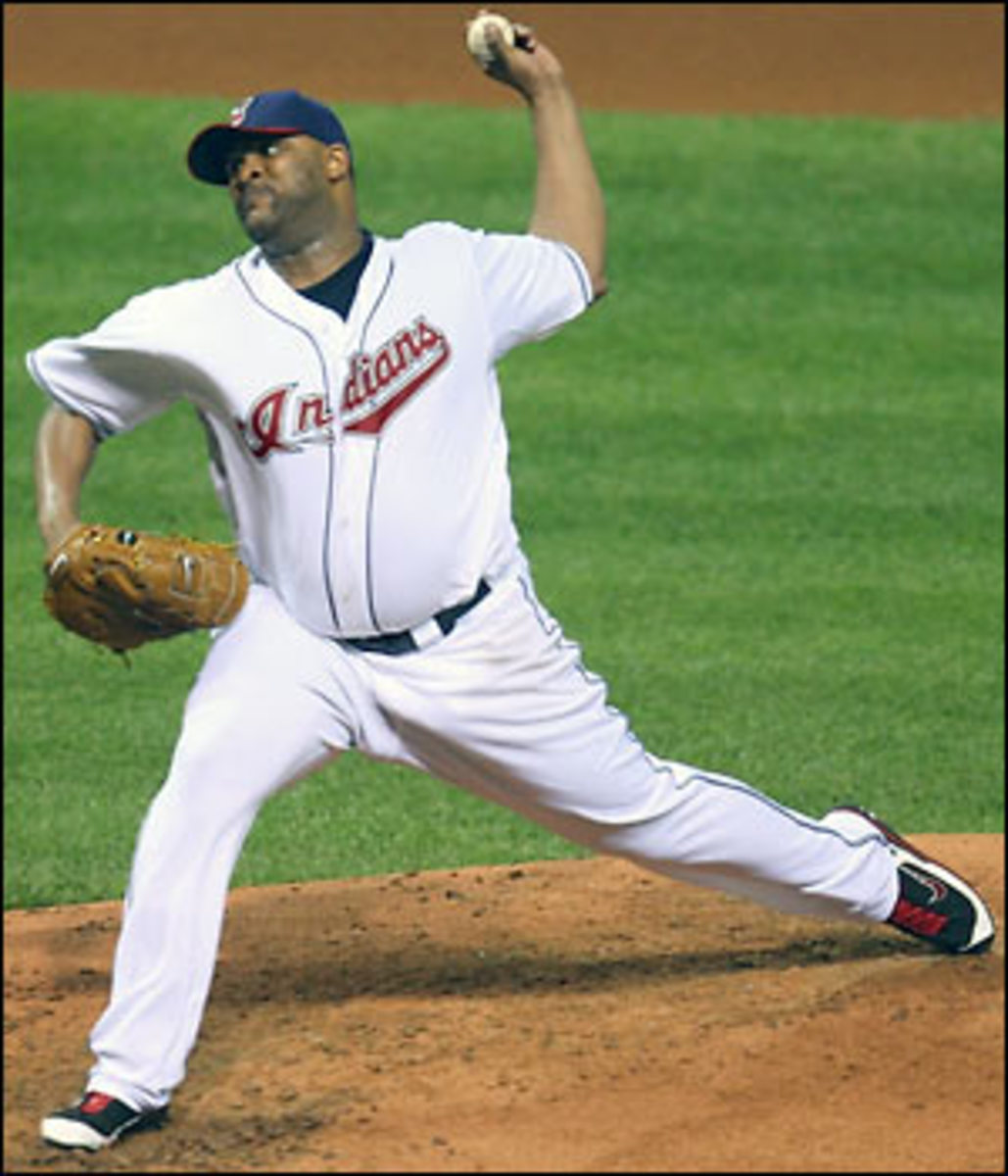Score one for the voters
Is 20 wins no longer a magic number? It's about time.
This is not the first time that the Cy Young voters have bypassed a 20-game winner like Josh Beckett for a pitcher who didn't win 20, like the 19-7 C.C. Sabathia. It happened in 2004, when Roger Clemens (18-4) won the Cy over teammate Roy Oswalt (20-10). Likewise in 2003, when Eric Gagne became the first reliever to win the Cy in more than a decade, with Atlanta's Russ Ortiz (21-7) finishing in fourth place. And in happened in both leagues in 2000, when Randy Johnson (19-7) took the NL hardware over Tom Glavine (21-9) and Darryl Kile (20-9), while Pedro Martinez (18-6) unanimously won the AL Cy rather than Tim Hudson (20-6) or David Wells (20-8).
But this case was different, because the differences between Sabathia and Beckett were otherwise very subtle. They finished with nearly identical ERAs (3.27 for Beckett, 3.21 for Sabathia), and the same number of losses (seven apiece). Both pitchers had outstanding strikeout-to-walk ratios (209-to-37 for Sabathia, 194-to-40 for Beckett). Each led his team to 96 wins and a division crown. This was not the case in previous years; when Martinez won the 2000 award with 18 wins in 2000 his microscopic 1.74 ERA was less than half that of 20-game winners Hudson (4.14) and Wells (4.11).
Let's take nothing away from Beckett, who has a World Series ring to show for his efforts, and who is the best right-handed pitcher in his league right now. But the voters made the right choice. The principle reason is simply a matter of volume. Sabathia pitched 241 innings to Beckett's 200 2/3, an advantage of more than 20 percent. He completed the seventh inning 24 times, as opposed to Beckett's 15, a critical threshold for a team with a setup man as effective as Rafael Betancourt, but inconsistent middle relief. As a result Sabathia finished with a 65.2 Value Over Replacement Player (VORP) to Beckett's 58.6. The voters have started to look at these statistics, and it's giving them a more complete picture of pitcher performance.
Sabathia will take home a $3 million bonus for winning the Cy Young, and one of the prevailing themes in today's media coverage is that this amounts to hazard pay. Sabathia, after all, appeared tired in the postseason, watching his ERA balloon to 8.80 as the Indians succumbed to the Red Sox. Although there is believed to be nothing wrong with his arm, Indians fans will be at least a little bit nervous when he takes the mound again next spring.
At the same time it would be a stretch to assert that the Indians made some kind of a trade-off between a Cy Young for Sabathia and a World Series appearance. Sabathia made five starts in September and threw 523 pitches; Beckett, who is slightly less efficient with his pitches, also made five starts and threw 553 pitches. Yes, Beckett pitched fewer innings during the season, principally because of a trip to the DL in May. But he was worked just as hard as Sabathia down the stretch. Nor were Sabathia's pitch counts especially high. He required fewer pitches on the season (3,581) to complete his 241 innings than the Rays' Scott Kazmir needed (3,609) to complete his 206 2/3 innings.
Baseball can be a monkey-see, monkey-do sport, and the perception that Sabathia was overused, while Beckett was handled more carefully, could turn out to be a very powerful one. It wouldn't surprise me if late-September baseball comes to resemble Week 17 in the NFL, with playoff-bound teams resting their regulars and going with their taxi squads. If that's the case, then the 241 innings that Sabathia pitched, and the Cy Young Award that it earned him, will stand out even more in future seasons.




































